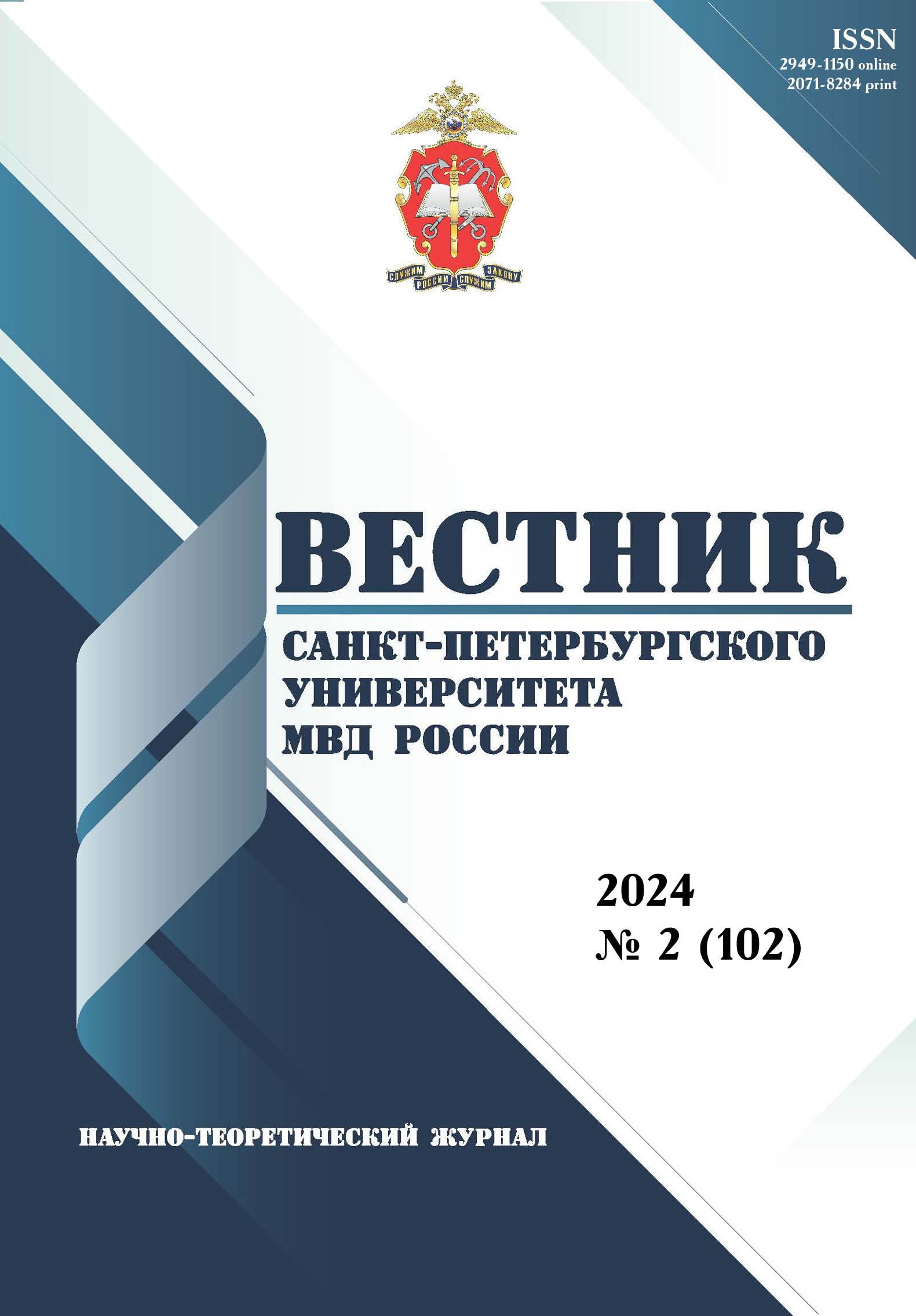UDC 343.2
Introduction. The problem of correct understanding of the essence, content and legislative regulation of guilt continues to be one of the most actual for the national criminal law, as many conceptual issues directly depend on its correct solution. Undoubtedly, at different times this problem repeatedly became the subject of scientific research, but not all controversial and ambiguous issues have been brought to a solution acceptable by the majority of scientists and law enforcement officials. Methods. In the process of scientific research general scientific methods (dialectical, systemic, structural, formal-logical, analysis, synthesis, analogy, functional) and speciallegal methods of research (legal-technical, dogmatic, comparative-legal) were used. In particular, the use of paired categories of dialectics made it possible to establish an inseparable connection and interdependence between the concept and essence of guilt, between its forms and content. Results. The author formulates an original concept of guilt of a person having committed an offence, as well as its most significant forms of manifestation for law enforcement practice, which require legislative enshrinement and law enforcement use in counteracting modern crime. For practical implementation of the formulated proposals, the author considers it necessary to make appropriate changes in the current Criminal Code of the Russian Federation.
presumption, guilt, culpability, imputation, blamefulness, inappropriate
1. Sartr Zh. P. Ekzistentsializm – eto gumanizm / Sumerki bogov / sost. i obshch. red. A. A. Yakovleva ; Perevod. – Moskva: Politizdat, 1990. – S. 319–344.
2. Il’in I. A. O sushchnosti pravosoznaniya / sost. i avt. vstup. st. I. Smirnov. – Moskva: Rarog, 1993. – 234 s.
3. Denisov Yu. A. Obshchaya teoriya pravonarusheniya i otvetstvennosti : Sotsiologicheskiye i yuridicheskiye aspekty. – Leningrad: Izdatel’stvo LGU, 1983. – 142 s.
4. Nedopekina T. B. Prestypnoe legkomislie: voproci zakonodatelnogo regylirovaniia, problem teorii I praktiki. – M.: Yrlitinform, 2011. – 176 s.
5. Sergeyeva T. L. Voprosy vinovnosti i viny v praktike Verkhovnogo Suda SSSR po ugolovnym delam. – Moskva; Izdatel’stvo i 2-ya tipografiya izdatel’stva Akademii nauk SSSR v Moskve, 1950. – 184 s.
6. Martsev A. I. Obshchiye voprosy ucheniya o prestuplenii : monografiya. – Omsk: Omskiy yuridicheskiy institut MVD Rossii, 2000. – 136 s.
7. Kelina S. G. Nekotoryye napravleniya sovershenstvovaniya ugolovnogo zakonodatel’stva // Sovetskoye gosudarstvo i pravo. – 1987. – № 5. – S. 65–71.
8. Rarog A. I. Problema viny i reforma ugolovnogo zakonodatel’stva / Problemy ugolovnopravovoy bor’by s prestupnost’yu : sbornik nauchnykh trudov / otv. red. B. V. Zdravomyslov. – Moskva: [b. i.], 1989. – S. 14–24.
9. Yazovskikh Yu. A. Prevysheniye predelov neobkhodimoy oborony i printsip viny // Rossiyskiy yuridicheskiy zhurnal. – 1997. – № 3 (15). – S. 129–136.
10. Zhalinskiy A. E. Sovremennoye nemetskoye ugolovnoye pravo. – Moskva: Prospekt, 2006. – 560 s.
11. Utevskiy B. S. Vina v sovetskom ugolovnom prave. – Moskva: Gosudarstvennoye izdatel’stvo yuridicheskoy literatury, 1950. – 318 s.
12. Nazarenko G. V. Vina v ugolovnom prave. – Orel: Orlovskaya vysshaya shkola MVD RF, 1996. – 94 s.
13. Veklenko S. V. Ponyatiye, sushchnost’, soderzhaniye i formy viny v ugolovnom prave : monografiya. – Omsk: Omskaya akademiya MVD Rossii, 2002. – 192 s.
14. Veklenko S. V. Dialektika i voprosy viny v ugolovnom prave : monografiya. – Omsk: Omskaya akademiya MVD Rossii, 2003. – 84 s.
15. Plotnikov A. I. Ob”yektivnoye i sub”yektivnoye v prestuplenii : monografiya / otv. red. A. I. Chuchayev. – Moskva: Prospekt, 2011. – 240 s.














